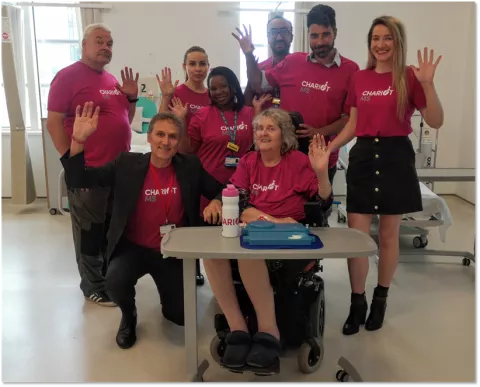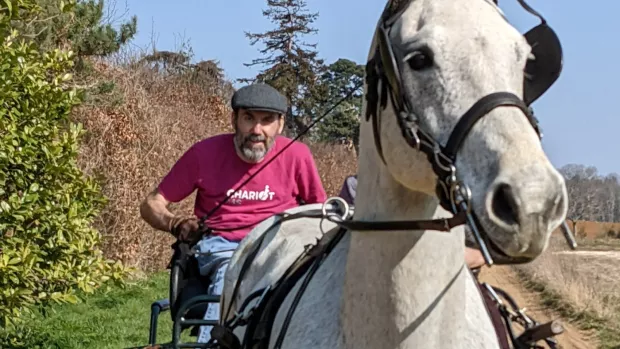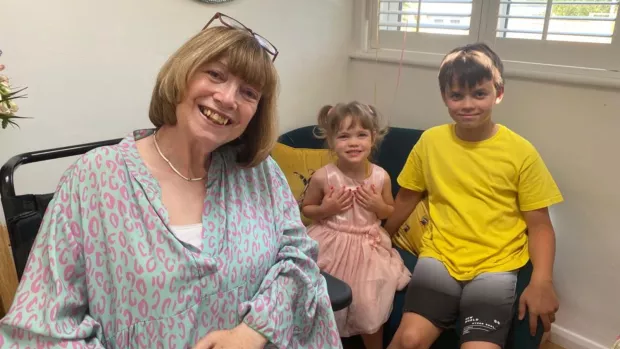
World-first clinical trial for advanced MS: hundredth participant joins ChariotMS
Tina Morris is the hundredth person to join ChariotMS. Our phase 2 trial testing whether cladribine can help people with MS maintain the use of their arms and hands.
Tina says: “When I was told I was the hundredth person to be eligible for ChariotMS, I couldn’t believe it! My family are all so pleased too – it’s wonderful. The trial is really exciting and when I think there are over 130,000 people in the UK who have MS I feel very privileged to be part of it.”
Existing drugs with a new purpose
The trial is for people with advanced MS. It’s testing whether cladribine can slow upper limb disability worsening. Cladribine is already licensed as a disease modifying therapy (DMT) for highly active relapsing MS.
Professor Klaus Schmierer, from Queen Mary University of London and Barts Health NHS Trust, is leading the ChariotMS trial.
Professor Schmierer says: “We’re thrilled to have accepted Tina as our hundredth participant, and pleased to be half way to recruiting 200 people with progressive MS to join ChariotMS.”
Previously excluded, now included
Until now, clinical trials for MS have not included people who rely on a wheelchair. And drugs have only been licensed if they improve walking ability. This has excluded many people from taking part in trials.
Tina says: “Some 20 years ago there was nothing out there for anyone with MS and no hope for any treatment, but thankfully it’s a different picture now. There are many options for treatments for relapsing MS but at last primary MS is in the limelight.”
Read more about treatments for progressive MS
Tina first started experiencing MS symptoms in 2009, and was formally diagnosed with primary progressive MS in 2012.
She adds: “For the first few years after my MS diagnosis I could get around using my rollator. It was a slow progression and it got very steadily worse. My right hand and arm don’t work, and I have no mobility from the waist down.
“The aim of the trial is to halt MS progression and if I end up staying like this it will be a bonus. If I lost the use of my left hand I don’t know what I’d do.”
Hope for the future
Professor Schmierer says: “If successful, ChariotMS would be a major step towards a first DMT to protect upper limb function for people with MS who aren't able to use their lower limbs at all, or can only walk short distances with help from aids like crutches.”
Our Head of Research, Dr Clare Walton, adds: “Preserving hand and arm function would unquestionably improve the quality of life of people with MS, helping them to live more independent lives.
"We hope that Tina’s story will encourage others to ask their MS specialist about ChariotMS.”




